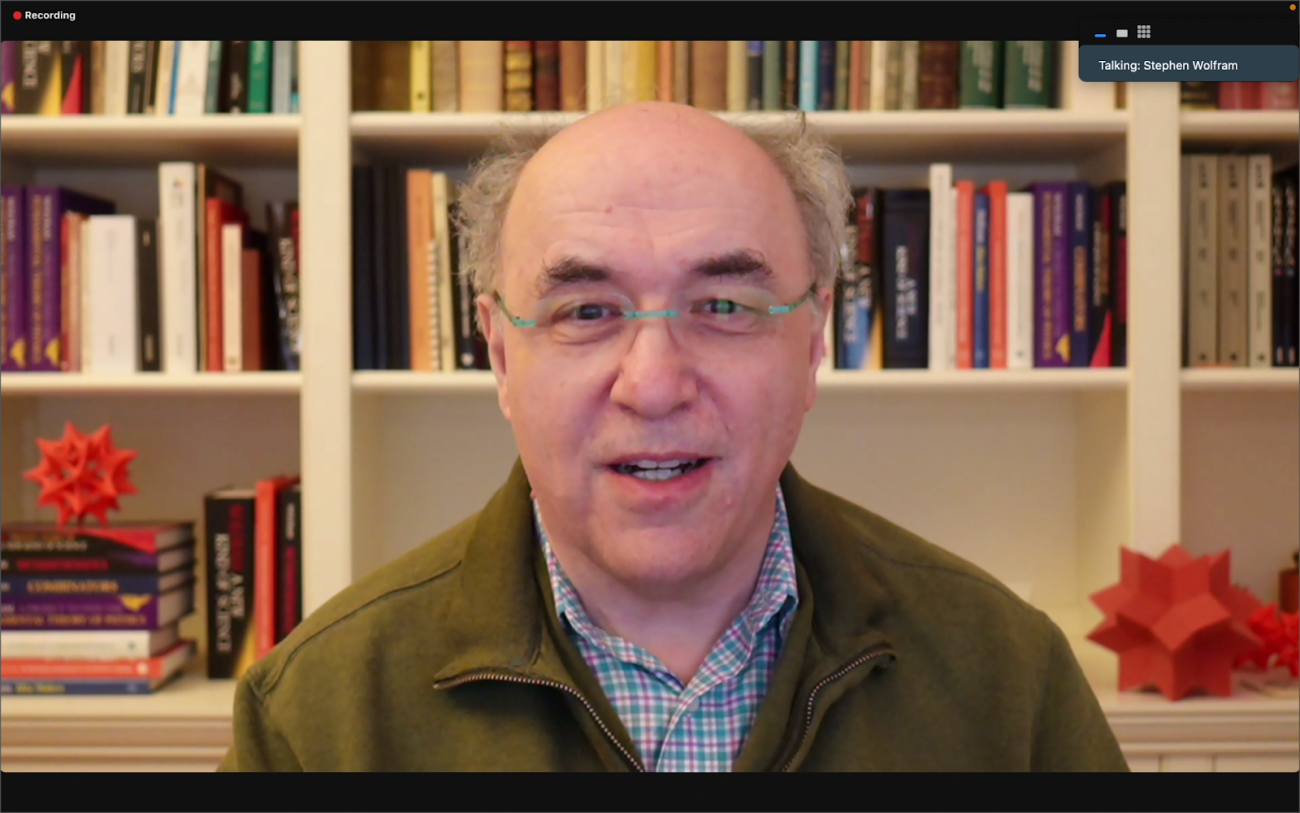|
Listen to this story
|
“Now that you have a human, a serious computation system, and an AI all in a conversation together, it becomes an interesting combination, which is the biggest picture for us right now,” said excited Stephen Wolfram, founder and CEO of Wolfram Research, in an exclusive interview with AIM.
The excitement comes in the backdrop of OpenAI and Wolfram Research partnership to release the plugin. The plugin, where ‘computation met knowledge’, gave ChatGPT access to specialise maths, alongside real-time data and visualisation through Wolfram|Alpha and Wolfram Language. “Putting together the plugin in a couple of months was made possible because both the groups had solid software engineering,” Wolfram boasted.
Wolfram finds it amusing to tutor people, just with a pure LLM. If you want facts, the LLM monotone is not going to be able to do that. An LLM is a creator of linguistically plausible material. It has got to have some backend, he believes. “It’s interesting when people say ‘We’ll just get the LLM to do everything’ but that isn’t going to work because natural language is not precise. In the end, you have to specify what you want and our goal has been to provide the most-efficient possible way to specify what you want,” he added.
For 40 years, Wolfram has been working on the idea of making the highest level possible representation of computational operations through the Wolfram language. The trailblazer said that the traditional programming languages missed a crucial ingredient: human-centricity.
People hesitate to write two lines of Wolfram code instead of a thousand Python lines because “it seems like cheating” he quipped. According to the physicist-turned software entrepreneur, the important thing is, humans should be able to read the code to know whether it’s actually what you wanted. No traditional languages were constructed to have them be readable by humans. The objective was humans write and computers read, he explained.
“I would not have been surprised if the concept of computational language wasn’t really well understood for another many decades. So it’s really nice that these AIs have come to help with that,” he acknowledged.
In Love With LLMs
It’s not everyday that one gets to hear the chief of Wolfram Research talk about what he has been up to lately. “We’re about to use the symbolic language [Wolfram] to provide a way of using LLM as a component in a larger software stack,” said Wolfram “It’s something that you can do in a very beautiful way,” he said convincingly.

The prolific 63-year-old, seated near his company’s origami logo, spoke at length about how surprised he has been by the success of LLMs and his plans to optimally use the internet’s current favourite technology. “It surprised us all, including the people who are working on these things. There’s been progressive improvement, but nobody really expected this level of human utility,” he said, about the research company’s “coming attraction”.
Indian roots
Another area that interests Wolfram is building a semantic grammar of language. Voicing his curiosity regarding the works of Panini, a legendary Sanskrit grammarian he said, “It’s difficult to read his work as it’s written in aphorisms, but I could see this idea of a formal grammatical statement of how languages work. It got lost for a couple of thousand years, but it’s been known for a while. We now realise that there’s a higher level representation that includes not just the grammatical structure, and syntax, but also the meaning of what’s going on. A lot of the technology, in understanding how to build systems for education, seems to be directly relevant to this.
“But we don’t yet understand what’s possible. When we started building Wolfram Alpha 15 years ago, there was this whole idea of having something where you could use natural language as an interface. It wasn’t clear that was going to work at all. In a certain way it hadn’t worked for decades. What made it work was natural language understanding. What we’re seeing now is a much richer ability to do linguistic processing. A precise formalism is what we built in our computational language,” he said.
AGI talks
No conversation with Wolfram, goes without a mention of AGI or machines achieving human level intelligence. Wolfram said, “To add just another human, we’ve got a perfectly good biological way. I don’t think that’s an interesting aspiration.”
Currently AI emulates what humans are and what we are interested in. ChatGPT is a big reflection of a trillion words that humans wrote and put on the web. It’s very easy to get vastly superhuman intelligence, he opined.
It’s just like all these things in nature where lots of complicated things are happening and we have no scientific narrative that describes or makes them useful for technology. It’s easy to computationally discover amazing things that we’ve never seen before. What’s difficult is to figure out why we care. If you were to take current mathematics, and feed it to somebody from the 1800s they would just not care about it, he added.
“It’s all around but the only problem is we humans don’t care about it,” Wolfram concluded.





















